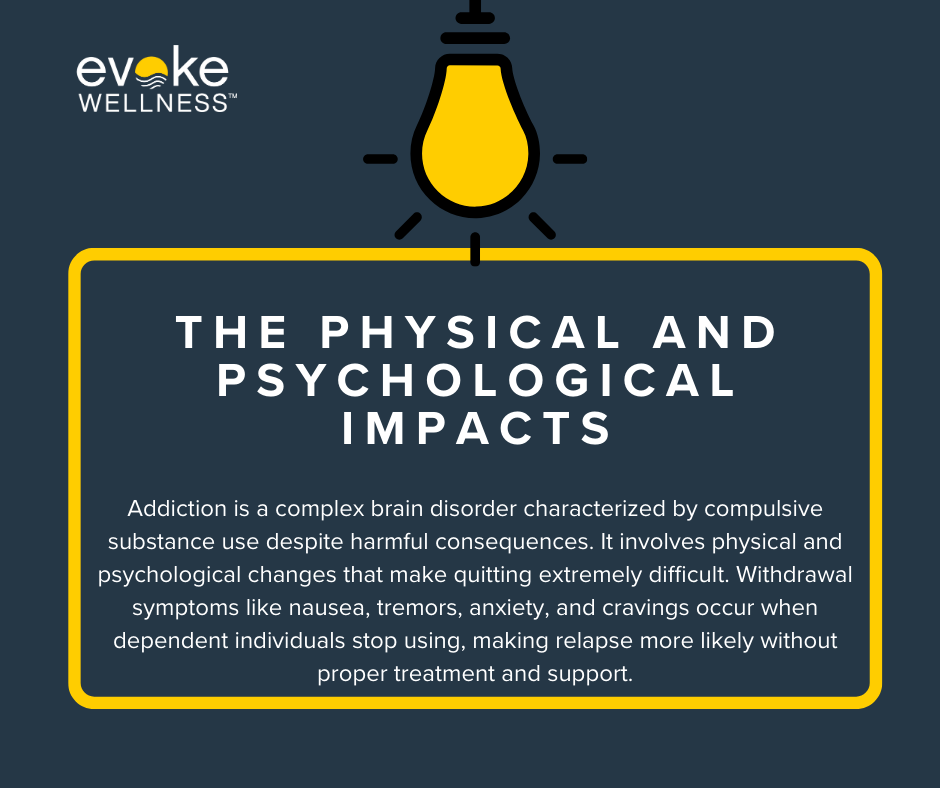As your loved one embarks on the challenging journey of detox, your support can make all the difference. Recent studies show that family involvement increases treatment retention rates by up to 40%. Understanding your role during this vulnerable time is crucial. According to the National Institute on Drug Abuse, over 20 million Americans struggle with substance use disorders annually. By learning how to effectively support your loved one through detox, you’re not only aiding their recovery but also contributing to a broader societal shift towards compassionate, informed addiction treatment.
Together, let’s embrace the journey to recovery and the promise of a new beginning. Call us at (833) 819-6066 today or reach out online.
How to Support a Loved One Going Through Detox
Educate Yourself
Detoxification is a critical first step in recovery from substance abuse disorders. Understanding the process helps you offer meaningful support. Learn about withdrawal symptoms, timelines, and emotional challenges.
Provide Encouragement
Detox can be grueling – remind your loved one why they chose this path. Celebrate small wins and reassure them during setbacks. According to a 2019 study, having a supportive social network increases the likelihood of completing detox.
Ensure Comfort & Safety
Make their environment calm and free from triggers. Stock up on hydrating fluids, light foods, and any prescribed medications. Be prepared to get medical help if withdrawal symptoms become severe.
Practice Self-Care
Caring for someone in detox is stressful. Maintain your own health through exercise, restful sleep, and taking breaks. Respecting personal boundaries allows you to be fully present when needed.
According to the Substance Abuse and Mental Health Services Administration (SAMHSA), around 20 million Americans struggle with substance use disorders annually. With compassion and preparation, you can create a strong support system for your loved one’s recovery journey.
Understanding Addiction and Withdrawal

Prevalence and Risks
Substance abuse disorders affect over 40 million Americans annually, contributing to around 95,000 deaths and reducing lives by an average of 29 years. Certain substances like bromazolam, a potent designer benzodiazepine, have an exceptionally high addiction potential due to their rapid onset and long half-life.
Comprehensive Treatment Approach
Overcoming addiction requires a multifaceted approach addressing physical dependence, co-occurring mental health issues, and lifestyle factors. Evoke Wellness offers intensive inpatient programs with 24/7 support, medical detox, evidence-based therapies like CBT and DBT, family counseling, and holistic care for long-term recovery. Aftercare planning ensures a smooth transition to prevent relapse.
Recognizing Common Withdrawal Symptoms
Physical and Mental Effects
Detoxing from drugs or alcohol can trigger a wide range of physical and psychological withdrawal symptoms. Some common physical effects include nausea, vomiting, tremors, excessive sweating, headaches, muscle aches, and insomnia. Mental symptoms like anxiety, irritability, mood swings, depression, and cognitive impairment are also frequent challenges during detox.
Substance-Specific Symptoms
The specific withdrawal symptoms experienced often depend on the substance being abused. For example, opioid withdrawal typically involves intense flu-like symptoms, bone and muscle pain, diarrhea, and drug cravings. Benzodiazepine detox, on the other hand, can lead to severe anxiety, tremors, insomnia, and even seizures in some cases.
Post-Acute Withdrawal Syndrome
Even after the initial acute withdrawal phase, some individuals may experience Post-Acute Withdrawal Syndrome (PAWS). This condition involves lingering withdrawal effects like depression, anxiety, fatigue, and cognitive impairment that can persist for weeks or months after quitting the substance.
Seeking Professional Help
Attempting to detox alone can be extremely risky and even life-threatening with certain substances. Seeking medical supervision at an accredited detox center is crucial for safely managing withdrawal through medication, around-the-clock care, and professional support during this challenging process.
Creating a Supportive Home Environment
A Sanctuary for Recovery
Your home should be a sanctuary for your loved one during the challenging detox process. Creating a calm, stress-free environment can provide the stability and serenity needed to focus on recovery. Make their living space comfortable, clutter-free, and filled with positive affirmations.
Removing Temptations
One of the most crucial steps is removing all alcohol and drugs from the home. This eliminates potential triggers and temptations that could derail their progress. Be vigilant about keeping these substances out of reach, as even small amounts can reignite cravings.
Open Communication
Maintaining open and non-judgmental communication is key. Listen without criticism as your loved one shares their struggles, fears, and victories. Celebrate small wins together and offer reassurance during difficult moments. A supportive, understanding environment can make a significant difference in their recovery journey.
Seeking Professional Help
While a positive home environment is invaluable, professional addiction treatment is often necessary for a successful detox. Reputable facilities like Evoke Wellness offer comprehensive programs, including medical detox, therapy, and aftercare planning, to ensure a safe and sustainable recovery.
Attending Support Groups and Therapy Together
A Path to Shared Healing
Attending support groups and therapy together can be a powerful way for families to heal and grow alongside their loved one in recovery. Support groups like those offered at Evoke Wellness provide a safe, judgment-free space where individuals and their loved ones can connect with others navigating similar challenges. This sense of community can foster greater understanding, empathy, and accountability.
Rebuilding Trust and Communication
Family therapy programs teach families about the disease of addiction while equipping them with tools to improve communication, problem-solving, and coping mechanisms. As family members gain insight into the thoughts and behaviors driving addiction, they can work to rebuild trust, respect, and healthy relationships.
A Comprehensive Approach
The licensed professionals at Evoke Wellness recognize that addiction recovery is a lifelong journey best undertaken with a robust support system. By participating in support groups and family therapy together, loved ones can play an active role in decreasing relapse risks and fostering lasting recovery.
Avoiding Enabling Behaviors
Recognize Unhealthy Patterns
Enabling behaviors often stem from a place of love and concern, but they can inadvertently fuel the addiction cycle. According to experts, families may get caught in codependency traps like rescuing the addict from consequences or becoming hyper-vigilant over their every move. These patterns prevent true recovery and personal accountability.
Set Healthy Boundaries
To support lasting sobriety, it’s crucial to establish clear boundaries. Avoid shielding your loved one from the natural results of their substance abuse or taking on responsibilities that enable their addiction. Instead, experts recommend seeking professional guidance, prioritizing self-care, and focusing on your own healing journey to model healthy behaviors.
Encourage Responsibility
While showing empathy is important, enabling behaviors often involve making excuses, lying, or minimizing the seriousness of the situation. As experts note, addicts may lie or shift blame to avoid confronting their addiction’s reality. By holding your loved one accountable with compassion, you can motivate them to take responsibility for their recovery.
Celebrating Recovery Milestones
Each step forward in recovery is worth celebrating. As you or your loved one progress through detox and treatment, take time to acknowledge and honor the milestones achieved along the way. Positive reinforcement helps build confidence and determination to stay committed to sobriety.
Mark Meaningful Moments
Recovery involves profound physical, mental, and emotional changes. Celebrate completing detox, graduating from an inpatient program, reaching a sober anniversary, or other meaningful moments that demonstrate perseverance. These milestones represent hard-won victories over addiction.
Rebuild Trust and Connection
Making amends and finding forgiveness are integral to rebuilding trust within the family. Celebrate when your loved one takes responsibility, makes reparations, and shows sustained, positive change through consistency in recovery behaviors. These actions pave the way for deeper connection and healing.
Foster Community Support
A strong recovery community provides hope, accountability, and empathy – key elements for long-term sobriety. Celebrate by attending alumni events, participating in sober recreational activities, or hosting a gathering where your loved one can share their journey and inspire others. This reinforces the vital role of community support.
Seeking Professional Help for Addiction
The Importance of Treatment
Overcoming addiction requires professional support and a comprehensive treatment plan. While loved ones play a vital role, attempting detox without medical supervision can be extremely dangerous and even life-threatening. Seeking help from addiction specialists ensures a safe, structured process tailored to your unique needs.
Finding the Right Program
Research accredited addiction treatment centers and programs that offer personalized care. Look for facilities with experience treating your specific substance use disorder, as well as any co-occurring mental health conditions. Explore different treatment approaches – inpatient, outpatient, medication-assisted, or holistic therapies – to find the best fit.
Committing to the Journey
Recovery is an ongoing process that requires commitment and dedication. Be prepared to fully engage in your treatment program, follow recommendations from your care team, and embrace lifestyle changes that support your sobriety. With professional guidance and a strong support system, you can regain control and build a healthier, addiction-free life.
FAQ: How to Support a Loved One Going Through Detox
Educate Yourself on the Process
Understanding what your loved one is going through is key to providing meaningful support. Detox, the first stage of addiction treatment, involves allowing the body to rid itself of substances under medical supervision. This process can trigger intense withdrawal symptoms like nausea, anxiety, tremors, and cravings. According to Stanford’s Human-Centered AI group, overcoming addiction requires immense willpower and perseverance. Educating yourself on detox and its challenges can help you respond with empathy.
Offer Emotional Support
Your loved one will need reassurance during this difficult time. Evoke Wellness at Miramar stresses the importance of fostering a supportive network. Listen without judgment, validate their feelings, and remind them of their strength. Engage in positive activities together to provide distraction and create new sober memories.
Respect Boundaries
While emotional support is crucial, respecting boundaries is equally important. Your loved one’s recovery journey is their own. Avoid enabling behaviors or making decisions for them. Set clear expectations and follow through on any stated consequences. This tough love approach, coupled with compassion, can motivate lasting change.
Prioritize Self-Care
Caring for someone in detox can be draining. Family programs teach the importance of self-care for supporters. Make time for your own needs, seek counseling if needed, and don’t hesitate to ask others for help. Your resilience allows you to be a stable source of support.
Conclusion
As you support your loved one through detox, remember that your role is crucial to their recovery journey. By providing emotional support, creating a stable environment, and understanding the challenges they face, you can make a significant difference in their success.
Recent studies show that family involvement can increase treatment retention rates by up to 40%. Additionally, individuals with strong support systems are 50% more likely to maintain long-term sobriety. Your unwavering support and understanding can be the cornerstone of your loved one’s lasting recovery. Stay committed, patient, and hopeful as you navigate this challenging but rewarding process together.
Begin Your Journey with Evoke Wellness at Miramar
If you or a loved one is considering treatment, Evoke Wellness at Miramar invites you to contact us. Our compassionate team is ready to answer your questions, discuss your needs, and help you take the first steps toward recovery. In Miramar, you’ll find more than just a treatment program – you’ll discover a community dedicated to your wellness and success. Together, let’s embrace the journey to recovery and the promise of a new beginning. Call us at (833) 819-6066 today or reach out online.


